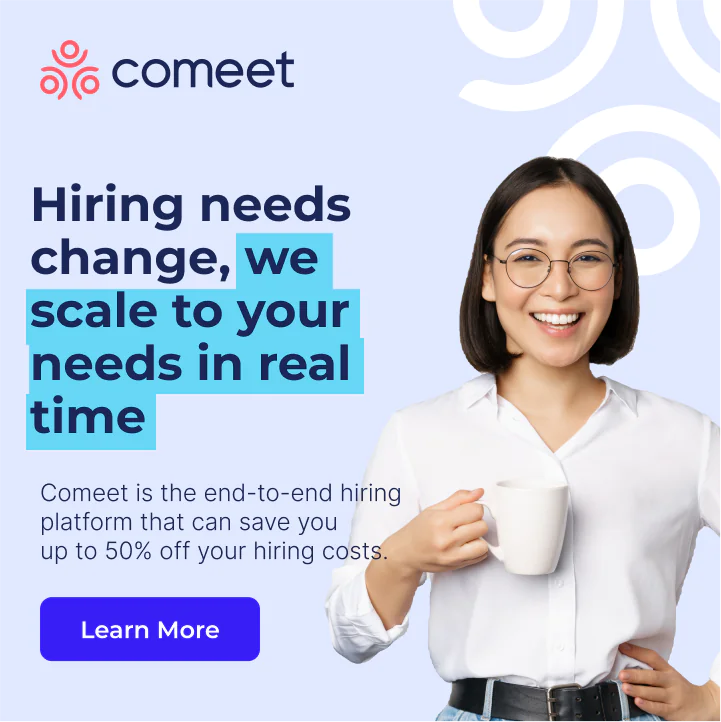The global economic climate has been challenging for many businesses. Economic uncertainty can make hiring and recruiting more difficult, as candidates become increasingly concerned with job security and may seek better opportunities in other industries or markets. A pivot in your hiring strategies is essential during these times.
You’re probably familiar with the term “hiring for fit,” a phrase that generally refers to finding candidates who will be an excellent cultural fit and whose skills align with your company’s mission.
But what if you need to hire during an economic downturn? What if your business needs more employees than usual at this time to keep up with demand? Or what if you have a limited budget and only have time available for particular positions, while others are left unfilled due to a lack of qualified applicants in your area?
In these cases, changing how you go about hiring can make all the difference between being able to meet customer demand and having people leave without having anyone else come in their place.
That’s why we’ve compiled three stories of companies that adapted their hiring strategies due to economic changes and benefited from it.
1. Google
As one of the major tech giants, Google has always prioritized innovation. The company has consistently taken proactive steps to source and acquire the best available talent to sustain this goal.
However, like many others, subsequent economic downturns impacted Google’s ability to meet its hiring goals and led them to explore alternatives for recruiting talent.
In addition to increasing diversity within their ranks through better-recruiting practices, Google also developed initiatives aimed at helping women and other underrepresented groups succeed at tech companies like themselves by providing mentorship programs and networking opportunities outside traditional work environments such as conferences or hackathons.
The tech giant also launched several training programs designed to get applicants from novice to job ready. This shift enabled them to empower potential candidates with skills, making it easy to onboard them when hired and for continued professional growth and development. On top of this, enrollees of Google’s training programs provide the company with consistent recruiting sources.
This way, Google can attract and retain exceptional talent within its ranks while economic conditions are not favorable.
2. Apple
Apple has found a sweet spot between being profitable and keeping its workforce and target market satisfied.
But it hasn’t always been easy for the company, which has continuously had to compete for its highly coveted market share.
After the recession, Apple made it a priority to keep its talent base as lean as possible in order to stay competitive. The company shifted its focus towards retaining employees with experience and skills that were in high demand while also looking for candidates who could be flexible and work remotely.
This strategy paid off – Apple was able to maintain its market share and even grow in some areas. Employees at Apple typically have a high level of job satisfaction. They report that their work is challenging and meaningful and that the company provides excellent growth opportunities. In addition, the company has a very positive culture, with employees feeling appreciated and supported.
In line with its goal of building and maintaining a lean workforce of highly competent professionals, the company also offers excellent benefits, including health insurance, retirement plans, and tuition reimbursement.
3. FedEx
FedEx has been in business for over 50 years, and during that time, the company has dealt with a variety of economic conditions. In the early 70s, when the company was founded, the economy was booming, and there was plenty of demand for FedEx services. However, as the economy changed over time, so did the demand for FedEx services.
In 2008, when the global recession started, FedEx faced competition from other online shipping companies. FedEx had to change its hiring strategies to meet goals to stay competitive and keep customers. Instead of focusing on how many employees they could hire in a year, they looked into how to improve their recruiting process by focusing on how many employees the company could keep and how productive they were.
Since making these changes, FedEx has been able to keep its employees and continue to grow its business. Today, FedEx is one of the largest shipping companies in the world and employs over 850,000+ workers.
Conclusion
Ultimately, hiring strategies, goals and practices should be designed to meet your company and its employees’ needs. In a time of economic uncertainty, it’s worth taking steps to improve the quality of candidates you attract and select from.
Any company looking to remain or regain relevance and competitiveness in the current market must be willing to rework strategies on matters that are core to their operations. An essential element of this strategy is the workforce.
Ensuring hiring goals align with the market, the company’s objectives, and stakeholders’ interests is a precise balancing act, which, if not done correctly, can be costly to everyone involved.
Need help with hiring and recruiting? Schedule a demo with Comeet today.





























